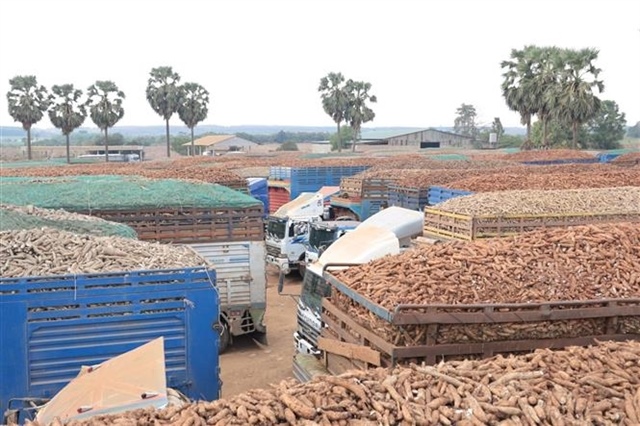eDiGi tries its luck as Apple reseller
eDiGi tries its luck as Apple reseller
Vietnam’s authorised Apple distributors now count a new member, as Imex Pan Pacific Group (IPPG) has launched its first Apple Premium Reseller (APR) store called eDiGi. However, with the Vietnamese preference for parallel imports and the previous failure of similar stores in Vietnam, IPPG’s chances for success seem thin.
On September 10, eDiGi was officially launched in Ho Chi Minh City, becoming the first reseller in the country to meet the standards of both Apple Premium Reseller (APR) and Apple Service Provider. Unlike Apple Authorised Reseller (AAR) stores run by FPT Group, which sell a variety of products from various brands, eDiGi only provides Apple products and maintenance and warranty services.Speaking at the launching ceremony, Johnathan Hanh Nguyen, the owner of IPPG, said that at first, eDiGi will not focus on profit but on increasing the number of its stores and market share to compete with parallel imports, which currently make up 40 per cent of the market.
While it is still very early to predict eDiGi’s future, Nguyen believes in his success. Vietnamese people are great fans of Apple products, despite the fact that these products – especially the iPhone – cost far more than their averaged monthly income. For example, when the iPhone X was launched in Vietnam, the 64GB and 256GB versions cost VND29.9 million ($1,317) and VND34.7 million ($1,528). This is roughly half of the average annual income of Vietnamese people ($2,215), while it would only be a weekly average income in the US.
Apple’s quest to find partners
Apple has been continuously looking for APR and AAR partners, with eDiGi as the latest example, which shows Vietnam’s strategic importance to the corporation in the world as well as Southeast Asia, especially as the US and European markets are reaching saturation.
An expert in the retail sector told VIR, “No firm, especially a global firm like Apple, want its distribution to depend on only two or three partners in a market, because this carries the risk of collusion between these partners, increasing the retail price of products and reducing commissions to Apple.”
In Vietnam, almost all authorised Apple agents belong to Mobile World and FPT Retail. According to a VIR source, these two agents currently make up 80 per cent of the sales revenue and 60 per cent of the market share of Apple’s authorised products in Vietnam.
Vietnam has approximately 20 APRs, while there are 527 in Singapore and approximately 500 in Thailand. To create favourable conditions for Apple’s business in Vietnam, it would be necessary for it to open Apple Stores. In the global market, Apple Store is the ace for luring in customers. Apple currently owns more than 500 Apple Stores globally. According to the plan, by 2023, Apple will have more than 600 such stores in its global markets, which is expected to increase its competitive capacity with other smartphone brands.
Evidently, Apple has far fewer authorised distributors in Vietnam than in other markets – and not for lack of trying. Over the past few years, Apple has been constantly entering into co-operation with several firms to open branded stores in the country, but it has proven extremely tough to find locations that satisfy Apple’s criteria for store openings.
Dang Quoc Tuan, director of iShop Vietnam Ltd., one of the largest parallel Apple products distributors, who co-operated with GSH to open an APR store chain called iCentre, told VIR that APR stores have very high standards. For instance, a store cannot be close to other Apple stores or food shops. The store front needs to be more than eight metres in width, while the store’s minimum area is 200 square metres, with an interior height of at least 3.2m. Such large land plots are extremely rare in the crowded metropolises of Hanoi and Ho Chi Minh City.
Authorised dealers struggle with parallel imports
Prior to IPPG launching its first APR store, Singapore-based Thakral Brothers Pte., Ltd., Singapore-based GSH Corporation, and FPT Group worked with Apple to develop a significant number of APR and AAR stores under the names Future World, iCenter, and F.Studio, but the majority of them failed.
Undoubtedly, there is great potential in selling Apple products in Vietnam. The sales revenue from Apple products, including iPhone, iPad, MacBook, and Apple Watch, reached $1 billion in 2017, according to Nikkei Asia. Apple’s iPhones accounted for 7 per cent of the 14 million smartphones sold in Vietnam in 2016, ranking third behind Samsung (28 per cent) and Oppo (25 per cent).
However, authorised iPhones only make up 60 per cent of the total volume sold in Vietnam, while the remaining 40 per cent are parallel imports.
In addition, making customers switch from parallel to original Apple goods is very difficult, because both have the same guarantees and the price of the former is usually lower. In Tuan’s opinion, these products could make up 60 per cent of all Apple products on the market. As a result, with the huge demand for parallel products, consumers’ lack of interest in authorised products is understandable. “We saw pretty low sales during our first year of running the iCenter chain. We were unable to recover our initial capital and decided to sell the chain to GSH. However, GSH had to close the chain after two years,” Tuan told VIR.
Other Apple partners in Vietnam are in a similar situation. “They opened and closed a lot of APR and AAR stores across the country, only maintaining enough of them to perform their commitments to Apple,” Tuan added.
Based on previous failures, eDiGi’s chances for success are quite modest. However, with IPPG’s huge financial potential, it can stand and take punches in hopes of future gains – a strategy akin to those employed by e-commerce firms who use foreign backing to weather some very hefty losses.




















